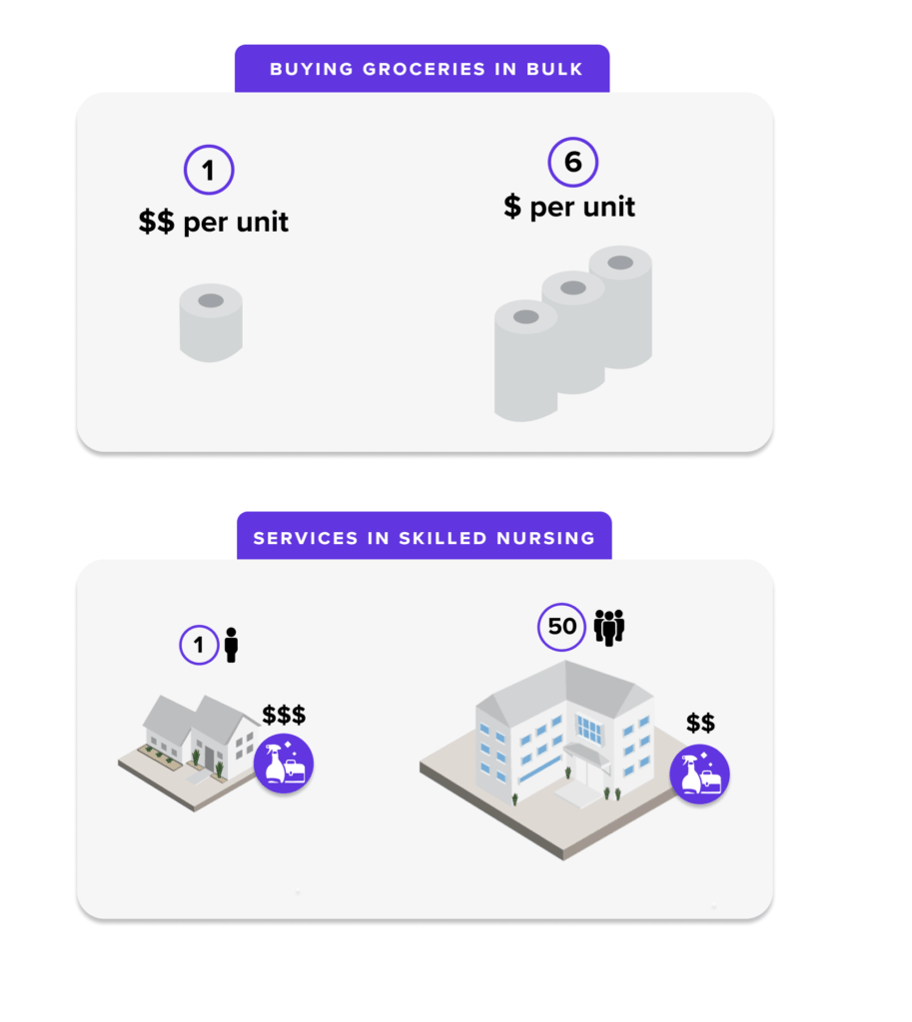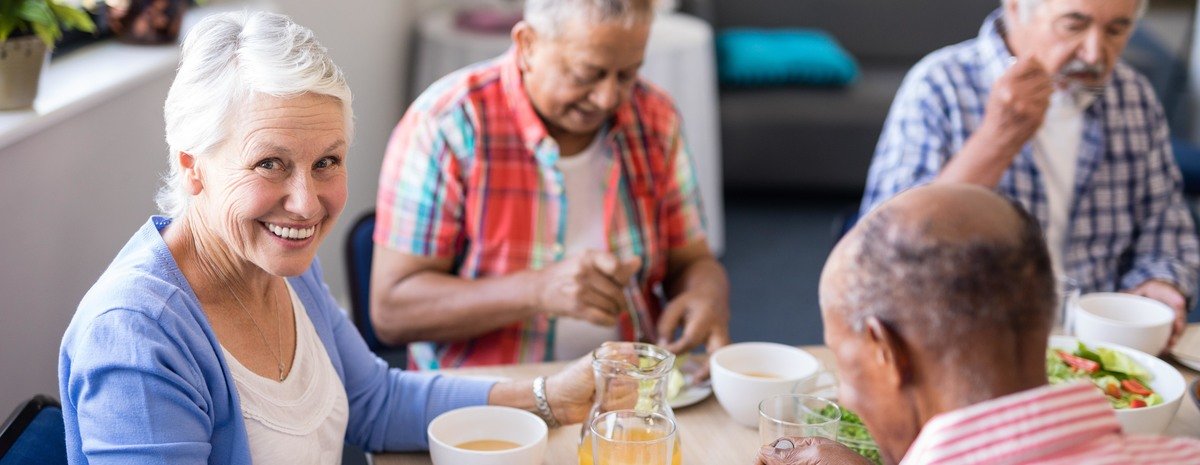There are many stigmas surrounding senior living; especially in the wake of the coronavirus, which disproportionately affected places with an older population. Right now, senior living is often seen as a last resort—somewhere you have to go when there’s simply no other option. This shouldn’t be the case—senior living exists, and continues to exist because it fills a need within the market and leverages economics to provide more overall value to its residents than they could afford apart from it.
But how does senior living work from an economic perspective?
There’s a principle in economics called the economy of scale: Put simply, the more you buy or manufacture of something, the cheaper it is per unit. This is because you can implement more processes, standardizations, and efficiencies that bring down the overall cost. This principle is why it’s cheaper to buy in bulk at the grocery store, why custom items are more expensive, and why more popular, well–supplied items tend to shift downward in price over time.
But what does this have to do with senior living? What a senior living community is (from a market perspective) is a giant facilitator of the economy of scale for the benefit of an older population.
Let’s take an example: It can be expensive to hire a cleaning service just for your apartment. This is because you’re not just paying for the cleaning—you’re paying for the time it takes for the cleaner to drive over, the gas for the drive, and an extra bit on top to distribute risk costs based on how often there are last minute cancellations. But when a senior living community hires a cleaning staff they don’t have to worry about these extra costs—the rooms are always in the same place, there’s no driving between them, they have a tangible number of rooms that need cleaning that they can budget for, and cancellations aren’t a sunk cost since the residents are paying for the service either way based on their rent.

This same principle applies to every service and amenity a senior living community provides for its residents: Hiring a professional chef to cook meals for just one person can be expensive, but hiring one chef plus some kitchen staff to cook for a whole community saves money in a lot of ways— ingredients are purchased in bulk and prepared for big groups, saving time and money, among other things. All these individual uses of the economy of scale add up, allowing every resident in a community to enjoy a much more comfortable lifestyle than they could afford on their own.
What does this have to do with safety?
The economy of scale doesn’t just have to do with luxuries and creature comforts, but also applies in the area of health and safety. While many people would be unable to afford a full–time nurse on call 24/7, senior living communities can disperse the cost of this due to the fact that they don’t need a nurse for every resident in the community—they only need enough nursing staff to handle things as they come up.
This same principle ripples through every level of health and safety. Senior living communities can leverage the economy of scale to outfit buildings with state of the art safety features, staff on call 24/7, top of the line medical technology like VSTBalance and VSTAlert, or anything else to improve the health, wellness, and safety of their residents.
Even in the context of COVID-19, while being in a more condensed high risk population can increase the chances of contracting the virus, other factors can improve outcomes: Lockdowns and quarantines are a lot more bearable and less isolating with a staff to check up on you, testing protocols can ensure that positive cases are identified quickly, and an on–staff nursing team means better and faster treatment of infected residents.
Senior living isn’t just a place you go when you have no other option. Well–run senior living communities allow their residents to experience comfort and care for a price they wouldn’t be able to otherwise. That’s why, from an economic perspective, you’re safer in senior living. Please check out our new initiative to boost occupancy in senior living communities and join the movement!


